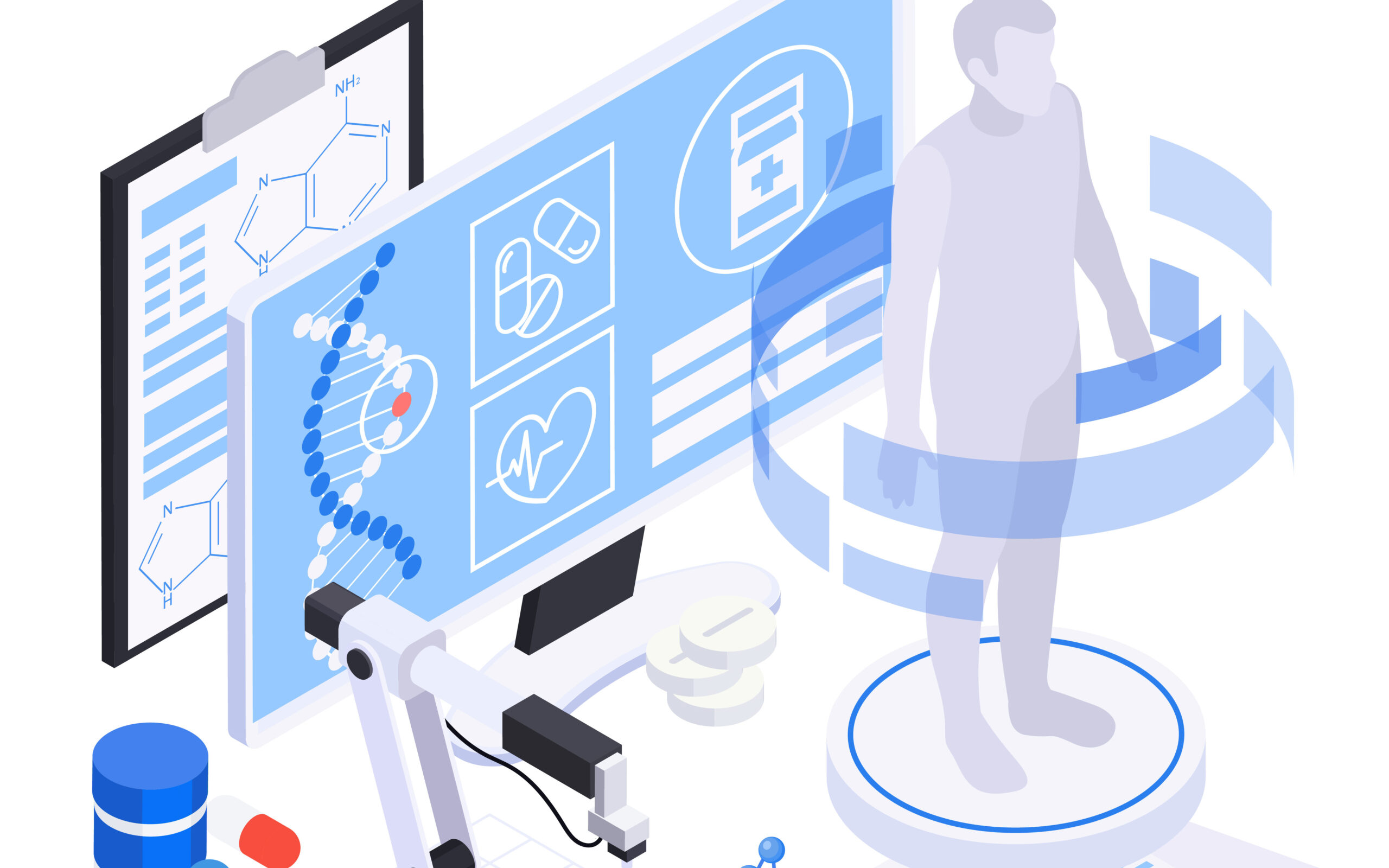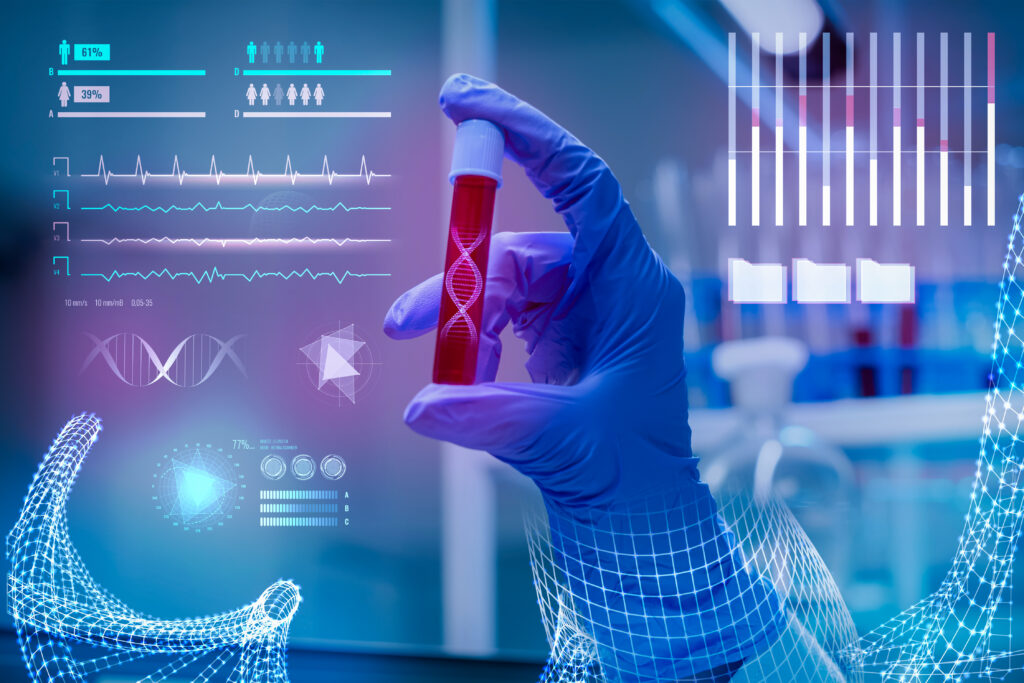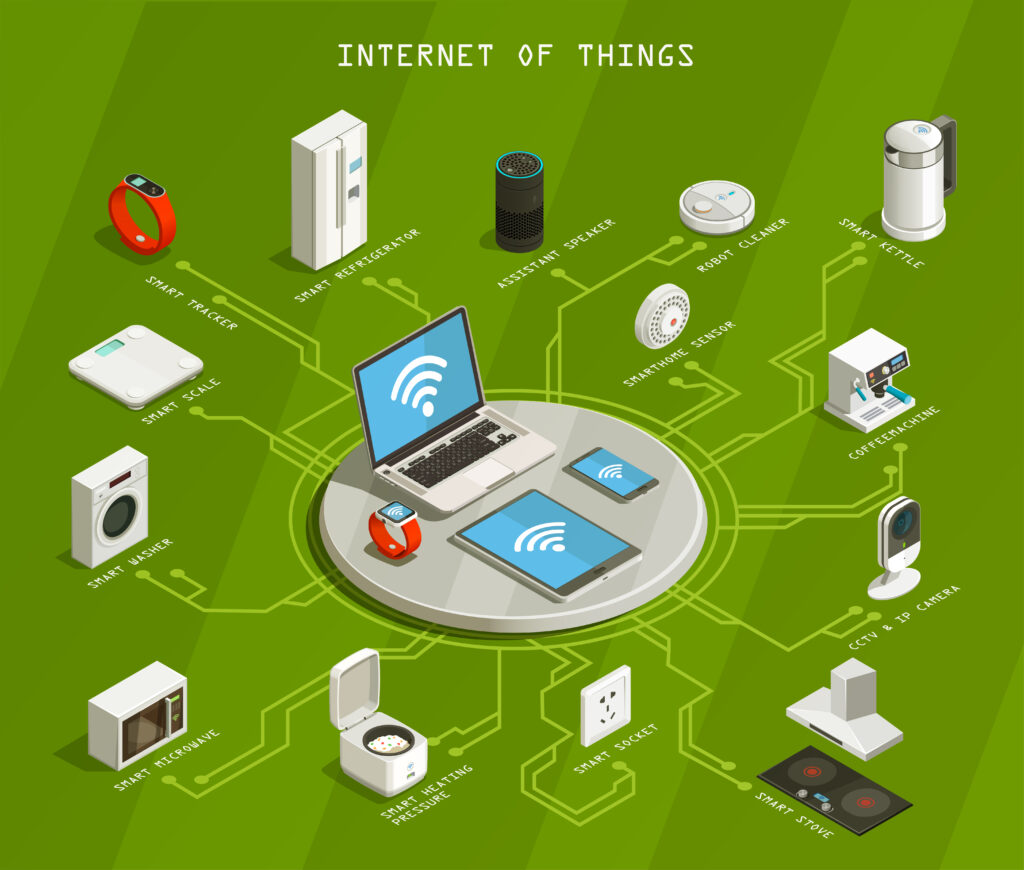The intersection of artificial intelligence (AI) and healthcare has sparked a revolution that is reshaping the entire industry. AI’s transformative capabilities are not only streamlining healthcare processes but also enhancing patient care and driving medical discoveries at an unprecedented pace. In this article, we will delve into the profound impact of AI on healthcare, exploring its various applications, from diagnosis and treatment to research and beyond.
Table of Contents

Overview – Artificial Intelligence in Healthcare
Artificial Intelligence in healthcare is unquestionably a game-changer. Its ability to analyze vast datasets, recognize patterns, and make predictions is transforming diagnostics, treatment personalization, drug discovery, and administrative tasks. With AI’s potential, healthcare is becoming more precise, accessible, and efficient, offering a promising future where patient care is at the forefront of innovation.

I. Disease detection and diagnostics
The efficiency and accuracy of disease diagnostics are being greatly enhanced by artificial intelligence (AI). Here are a few outstanding examples:
Medical imaging is one of the most well-known applications of Artificial Intelligence in healthcare. Radiologists can identify anomalies with improved accuracy and speed when using AI algorithms to analyse pictures from MRI, CT scans, and X-rays. This lessens human mistake and facilitates quicker diagnosis.
AI-powered technologies in pathology can help doctors recognise anomalies in tissue and malignant cells. They are able to analyse big datasets and provide insights that the human eye might overlook.
Early Detection: AI systems can identify the first symptoms of conditions like cancer and diabetes, allowing for prompt treatment and possibly saving lives.
II. Individualised Treatment Programmes
The needs of each patient are different, and AI can assist in customising treatment plans:
Genomic medicine: By analysing a patient’s genetic profile, AI can decide the best course of action for diseases like cancer. By reducing trial and error, this method makes sure patients get the optimum therapy right away.
Drug Discovery: By foreseeing possible drug candidates and simulating their effects on the human body, AI is accelerating the drug discovery process. This expedites the creation of novel drugs.
III. Administrative effectiveness
AI is streamlining administrative processes, lowering healthcare expenses, and increasing overall efficiency in addition to patient care:
Scheduling appointments: AI-powered solutions can optimise appointment scheduling, cutting down on wait times and ensuring that healthcare practitioners make the most of their resources.
Processing of Billing and Claims: AI can automate billing procedures, lowering administrative burden and minimising errors.
Chatbots and Virtual Assistants: To better the patient experience, healthcare institutions are using AI chatbots and virtual assistants to arrange appointments, respond to patient questions, and provide general information.

IV. Preventive Care and Predictive Analytics
For anticipating disease outbreaks, observing public health trends, and encouraging preventative treatment, AI’s capacity to analyse large datasets is invaluable:
Epidemiology: AI is capable of analysing a variety of data sources, such as social media and search queries, to quickly identify probable disease outbreaks.
Chronic Disease Management: AI can successfully manage chronic illnesses by predicting disease exacerbations and recommending therapies by continuously monitoring patient data.
V. Considerations of Ethics
Despite the clear advantages of Artificial Intelligence in healthcare, it’s critical to address ethical issues:
Data Security: Concerns about data security and patient privacy are raised while using patient data for AI analysis. Patient information is protected by laws like the Health Insurance Portability and Accountability Act in the US.
Fairness and Bias: Training data for AI algorithms may contain biases. Making sure Artificial Intelligence in healthcare is impartial and does not target particular demographic groups is crucial.
Transparency: There are questions concerning transparency due to the “black-box” nature of some AI algorithms. Patients and healthcare professionals must comprehend how AI makes choices.

VI. Healthcare and AI in the Future
The use of Artificial Intelligence in healthcare is highly anticipated:
Robotic surgery: Surgeons are adopting robotic equipment powered by AI to carry out complicated surgeries with greater accuracy.
AI-Enhanced Drug Delivery: AI can assist in the design of more effective drug delivery systems, such as intelligent implants that release medication as needed.
AI in Mental Health: Chatbots and other apps that are powered by AI are increasingly being used to assist mental health and keep an eye out for symptoms of depression and anxiety in users.
The COVID-19 pandemic hastened the use of telemedicine, and artificial intelligence is essential to improving the effectiveness and accessibility of virtual healthcare.
VII. Ethical Considerations and Data Privacy
As AI becomes more ingrained in healthcare, ethical considerations and data privacy are of paramount importance. Ensuring the responsible and secure use of patient data is essential to maintain trust and compliance with regulations like HIPAA.
VIII. Telemedicine and Remote Monitoring
The rise of telemedicine has been accelerated by AI-powered virtual care solutions. These platforms enable remote consultations, monitoring of chronic conditions, and real-time data collection, making healthcare more accessible and convenient.
IX. Regulatory Challenges and Adoption Hurdles
he integration of AI into healthcare faces regulatory challenges and adoption hurdles. Navigating the complex regulatory landscape and ensuring that AI systems meet safety and efficacy standards are critical tasks.

Conclusion: A Future Transformed by Artificial Intelligence in Healthcare
Artificial Intelligence is undeniably revolutionizing healthcare. From improving diagnostics and treatment personalization to accelerating drug discovery and enhancing administrative efficiency, the potential of Artificial Intelligence in healthcare is vast. However, it’s crucial to approach this transformation with ethical considerations, data privacy, and regulatory compliance in mind. As AI continues to evolve and mature, the future of healthcare promises to be more accessible, efficient, and patient-centric than ever before, thanks to the remarkable power of artificial intelligence.
Unquestionably, artificial intelligence is transforming the healthcare sector, revolutionising diagnostics, individualised care, administrative effectiveness, and more. However, as AI continues to assume a larger role in medical care, ethical issues must be addressed.
The promise of Artificial Intelligence in healthcare seems endless as we look to the future. Faster diagnosis, more efficient treatments, and ultimately better patient outcomes are all promises made by it. The intersection of AI and healthcare offers the possibility of a healthier and more effective healthcare environment as we work through the ethical and regulatory difficulties. This is encouraging for both patients and healthcare professionals.
![]()




